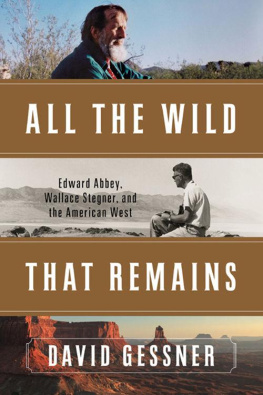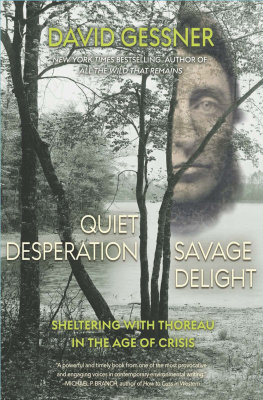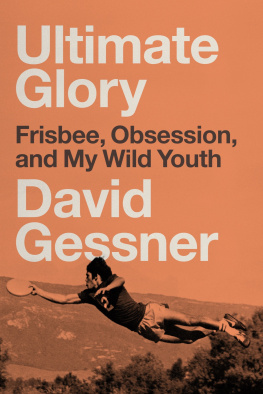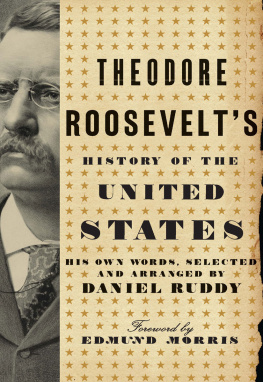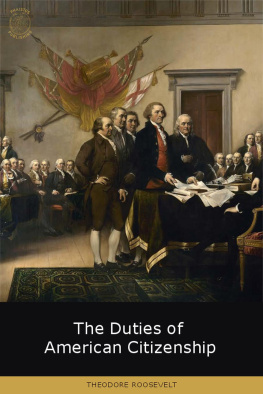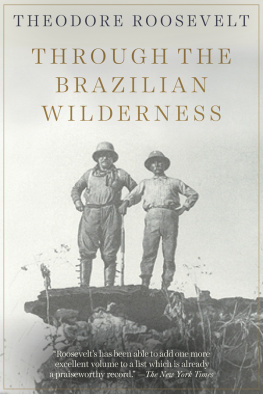David Gessner - Leave It As it Is: A Journey Through Theodore Roosevelts American Wilderness
Here you can read online David Gessner - Leave It As it Is: A Journey Through Theodore Roosevelts American Wilderness full text of the book (entire story) in english for free. Download pdf and epub, get meaning, cover and reviews about this ebook. year: 2020, publisher: Simon & Schuster, genre: Detective and thriller. Description of the work, (preface) as well as reviews are available. Best literature library LitArk.com created for fans of good reading and offers a wide selection of genres:
Romance novel
Science fiction
Adventure
Detective
Science
History
Home and family
Prose
Art
Politics
Computer
Non-fiction
Religion
Business
Children
Humor
Choose a favorite category and find really read worthwhile books. Enjoy immersion in the world of imagination, feel the emotions of the characters or learn something new for yourself, make an fascinating discovery.

- Book:Leave It As it Is: A Journey Through Theodore Roosevelts American Wilderness
- Author:
- Publisher:Simon & Schuster
- Genre:
- Year:2020
- Rating:4 / 5
- Favourites:Add to favourites
- Your mark:
- 80
- 1
- 2
- 3
- 4
- 5
Leave It As it Is: A Journey Through Theodore Roosevelts American Wilderness: summary, description and annotation
We offer to read an annotation, description, summary or preface (depends on what the author of the book "Leave It As it Is: A Journey Through Theodore Roosevelts American Wilderness" wrote himself). If you haven't found the necessary information about the book — write in the comments, we will try to find it.
Leave It As it Is: A Journey Through Theodore Roosevelts American Wilderness — read online for free the complete book (whole text) full work
Below is the text of the book, divided by pages. System saving the place of the last page read, allows you to conveniently read the book "Leave It As it Is: A Journey Through Theodore Roosevelts American Wilderness" online for free, without having to search again every time where you left off. Put a bookmark, and you can go to the page where you finished reading at any time.
Font size:
Interval:
Bookmark:
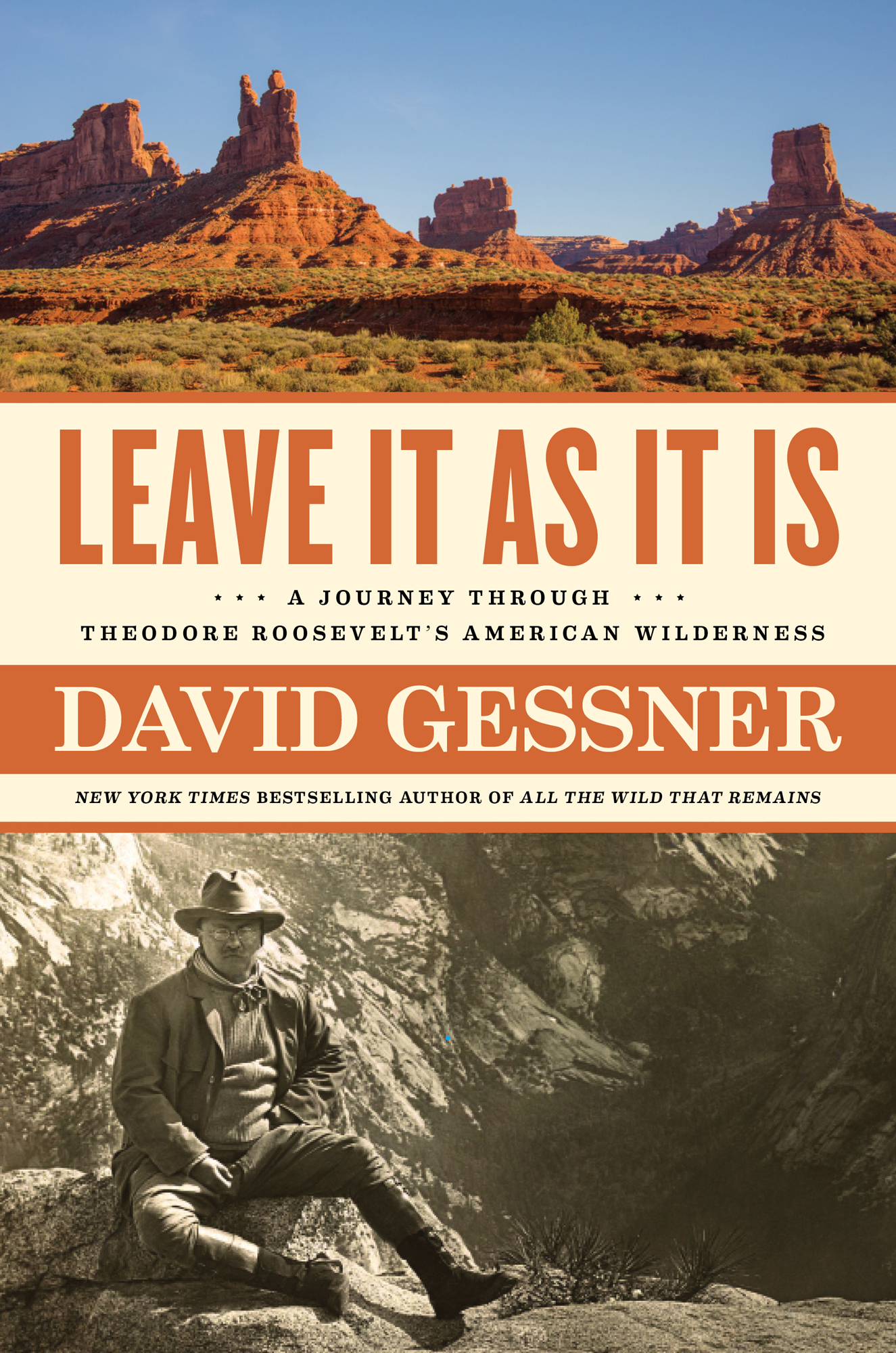

ALSO BY DAVID GESSNER
Ultimate Glory: Frisbee, Obsession, and My Wild Youth
All the Wild That Remains: Edward Abbey, Wallace Stegner, and the American West
The Tarball Chronicles
My Green Manifesto: Down the Charles River in Pursuit of a New Environmentalism
Soaring with Fidel: An Osprey Odyssey from Cape Cod to Cuba and Beyond
The Prophet of Dry Hill: Lessons from a Life in Nature
Sick of Nature
Return of the Osprey: A Season of Flight and Wonder
Under the Devils Thumb
A Wild, Rank Place: One Year on Cape Cod

Simon & Schuster
1230 Avenue of the Americas
New York, NY 10020
www.SimonandSchuster.com
Copyright 2020 by David Gessner
All rights reserved, including the right to reproduce this book or portions thereof in any form whatsoever. For information, address Simon & Schuster Subsidiary Rights Department, 1230 Avenue of the Americas, New York, NY 10020.
First Simon & Schuster hardcover edition June 2020
SIMON & SCHUSTER and colophon are registered trademarks of Simon & Schuster, Inc.
For information about special discounts for bulk purchases, please contact Simon & Schuster Special Sales at 1-866-506-1949 or .
The Simon & Schuster Speakers Bureau can bring authors to your live event. For more information or to book an event, contact the Simon & Schuster Speakers Bureau at 1-866-248-3049 or visit our website at www.simonspeakers.com.
Interior design by Paul Dippolito
Maps by Alexis Seabrook
Jacket design by Matt Iacovelli
Jacket photography (top) by Bob Thomason / Getty Images; (bottom) by Everett Collection Historical / Alamy Stock Photo
Library of Congress Cataloging-in-Publication Data
Names: Gessner, David, 1961 author. | Simon and Schuster, Inc.
Title: Leave it as it is : a journey through Theodore Roosevelts American wilderness / by David Gessner.
Other titles: Journey through Theodore Roosevelts American wilderness
Description: First Simon & Schuster Hardcover Edition. | New York : Simon & Schuster, 2020. | Includes index.
Identifiers: LCCN 2019051718 (print) | LCCN 2019051719 (ebook) | ISBN 9781982105044 (Hardcover) | ISBN 9781982105051 (Paperback) | ISBN 9781982105068 (eBook)
Subjects: LCSH: Environmentalism--United States--History. | National parks and reserves--United States--History. | Nature conservation--United States--History. | Forest conservation--United States--History. | Conservation of natural resources--United States--History. | Gessner, David, 1961---Travel. | Roosevelt, Theodore, 1858-1919--Travel--California--Yosemite Valley.
Classification: LCC GE195 .G385 2020 (print) | LCC GE195 (ebook) | DDC 333.78/3160973--dc23
LC record available at https://lccn.loc.gov/2019051718
LC ebook record available at https://lccn.loc.gov/2019051719
ISBN 978-1-9821-0504-4
ISBN 978-1-9821-0506-8 (ebook)
For Edmund Morris and Walter Jackson Bate, great biographers whose lives continue to inspire

 Theodore on the Edge
Theodore on the EdgeHe stands on the edge of the world, the great shimmering orange-red-and-bruise-colored chasm opening below him. Ravens lift off and ride the wind. He is bristling with energy at this moment. Which is to say it is like most of his waking moments.
Curious, always curious, he is a lover equally of the world and books about it. On the ride up here through the small juniper forest, always the show-off, he pointed out and named all the birds he saw to his companions. From his horse he studied the chickadees and towhees and pinyon jays and nuthatchestheir calls higher pitched than those back eastand stopped to listen to the sound of a woodpecker cracking open a pion nut. He knows these birds, knows their names, and he knows this canyon, too, though until today only through the words of others.
The president came to this place with expectations, like almost everyone else. The earliest explorers might not have known what to make of the canyon, and the first white settlers might have been surprised, and even angered, by what they saw as a colossal hole blocking their way west. But for more than a century now almost everyone who arrives here at the South Rim, who ascends out of the desert into the cool pine-scented air, does so knowing that something astounding awaits. Theodore Roosevelt is no different in this regard: even before he encountered the place, he had seen drawings and photos, and read plenty of descriptions. In fact he wrote most of the speech he will deliver an hour from nowwhen he will talk to the crowd of eight hundred gathering near the canyons edgewithout having ever laid eyes on the Grand Canyon itself. He did so, as he does many things, in a hurry, writing it this morning in his sleeping car as his train hurtled through New Mexico and into Arizona.
For the last month his life has been a paradox of speed and stillness, as he travels on his private train to some of the most beautiful and awe-inspiring places in North America, and then, after a few speeches, rushes off to the next place. It is 1903, and he is on a campaign tour for reelection, the first of its kind for a sitting president, during which he will travel more than a hundred miles a day, by train and car, and give close to two hundred speeches. An occasional insomniac and chronic coffee drinker (always with plenty of sugar please), he bristles with plans and schemes, ideas popping into his head at all hours, his famous enthusiasm bordering on, and perhaps sometimes slipping over into, mania. We humans are an elsewhere, the poet Reg Saner will one day write. Teddy is more elsewhere than most.
Except when he isnt. Because for someone so ambitious, so eager to get on with the next task, he is shockingly good at slowing down time, at what we might call, in a phrase he would no doubt find disagreeable, being in the now. Whether he is staring down a charging grizzly or diving into the bracing winter water of Washington, D.C.s Rock Creek Park or listening to the music of wind tinkling the cottonwood leaves, he seems to have the gift of becoming absorbed. This comes through most famously in his bouts of roughhousing with his children on the White House lawn. Even while burdened by the presidency, he has an enviable ability to slough off his heavy loads and simply enjoy himself.
Nothing quite takes him out of himself, nothing quiets his restless, fact-filled, febrile mind, like nature. He has already snuck off while camping at Yellowstone, walking eighteen miles alone to study a herd of elk. And in less than two weeks his fourteen-thousand-mile road trip will climax when he leaves his Secret Servicemen behind and embarks on a legendary excursion with the great prophet and protector of the natural world John Muir. That excursion in Yosemite will be long remembered as perhaps the most famous camping trip since Jesus spent his forty days in the desert. Think of it. The president of the United States sleeping outside under the stars with the countrys most famous lover of nature. Details from the night are sparse but we do know that the president was critical of the prophets bird knowledge and that the prophet questioned the morality of the presidents bloodlust as a hunter. But I wonder what else happened as they stared into the fire and talked? Perhaps a form of osmosis affected Roosevelt. Perhaps the idea that wilderness was vital, not just for any human purpose, but for itself, began to grow.
Font size:
Interval:
Bookmark:
Similar books «Leave It As it Is: A Journey Through Theodore Roosevelts American Wilderness»
Look at similar books to Leave It As it Is: A Journey Through Theodore Roosevelts American Wilderness. We have selected literature similar in name and meaning in the hope of providing readers with more options to find new, interesting, not yet read works.
Discussion, reviews of the book Leave It As it Is: A Journey Through Theodore Roosevelts American Wilderness and just readers' own opinions. Leave your comments, write what you think about the work, its meaning or the main characters. Specify what exactly you liked and what you didn't like, and why you think so.

